Episode 141: A Historic Marathon Run; Tackling Race Through Dialogue
This week on NEXT:
What CMP’s Transmission Line would mean for Maine’s forests. Plus, Vermont’s declining refugee population. And, Rhode Island’s shrinking quahog industry.
We’ll also learn about a dialogue project between individuals in Massachusetts, Kentucky and South Carolina.
And, we’ll meet Fenway’s Mr. Fix-It, learn about the first woman to run the Boston Marathon, and visit New Hampshire’s last Roller Rink.
It’s NEXT.
Photo at the top of the page: An illustration by Ellen Rooney for Her Fearless Run: Kathrine Switzer’s Historic Boston Marathon by Kim Chaffee
What Does the CMP Transmission Line Mean for Maine’s Forests?
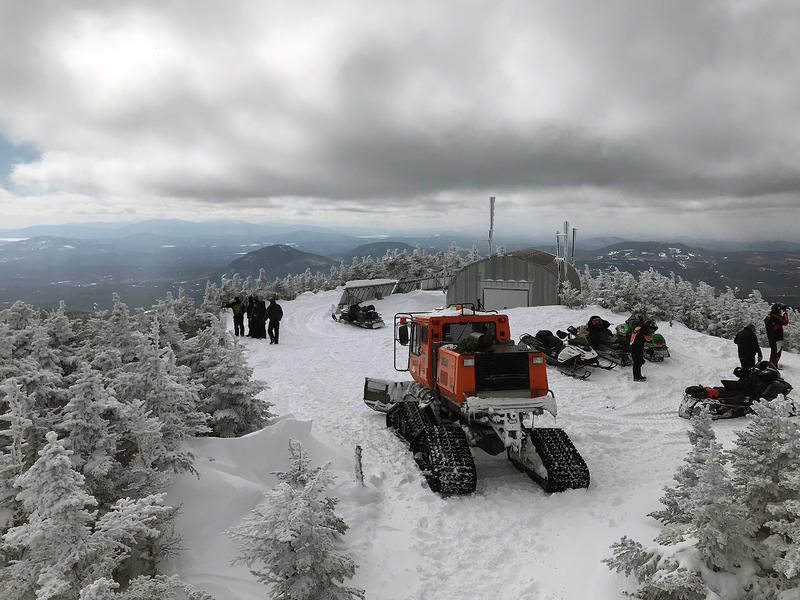
The peak of Coburn Mountain in western Maine overlooks woods through which CMP would construct its transmission line. Photo by Fred Bever for Maine Public
The big economic issues affecting New England are pretty well known. An aging population means a shrinking workforce, a changing climate, and shifting tastes have meant upheaval in our farming and fishing industries, and the high price of electricity. Plus a desire for more renewable energy means big changes in the energy sector, which could threaten some of our other natural resources.
In Maine, environmentalists are split over whether to protect scenic vistas, wildlife habitats, and backwoods culture or to support efforts to fight climate change. It all stems from a plan to bring hydropower down from Quebec to Massachusetts.
As Fred Bever reports, the plan depends on a $1 billion transmission line through heavily wooded areas of the state.
This piece is part of Fred Bever’s series, “Power Struggle in the Maine Woods.”
Vermont Faces Decline in Refugees
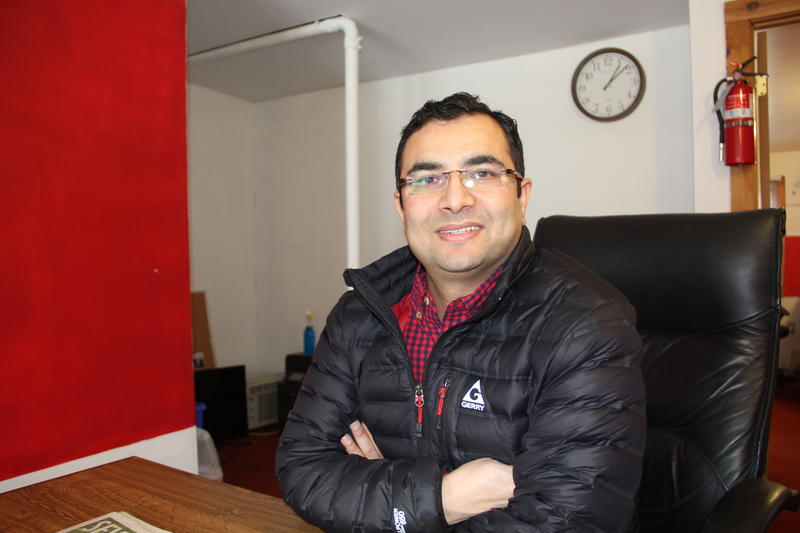
Bhuwan Sharma, co-owner of Burlington Employment Agency, at his Old North End office. He said his business has plateaued due in large part to Bhutanese-Nepali refugees moving from Vermont to Columbus, Ohio. Photo by Bayla Metzger for VPR
If a power line might change the way of life in Maine’s woods, there’s been another change happening in and around Burlington, Vermont.
The biggest city in the state has become a hub for refugees and immigrants, both changing the overwhelmingly white demographics, but also adding substantially to the workforce. But state officials and local businesses are concerned about that population shrinking. Recent federal restrictions have limited the number of refugees coming to the state.
And, as VPR’s Bayla Metzger reports, there’s another problem too.
Rhode Island’s Declining Quahog Industry
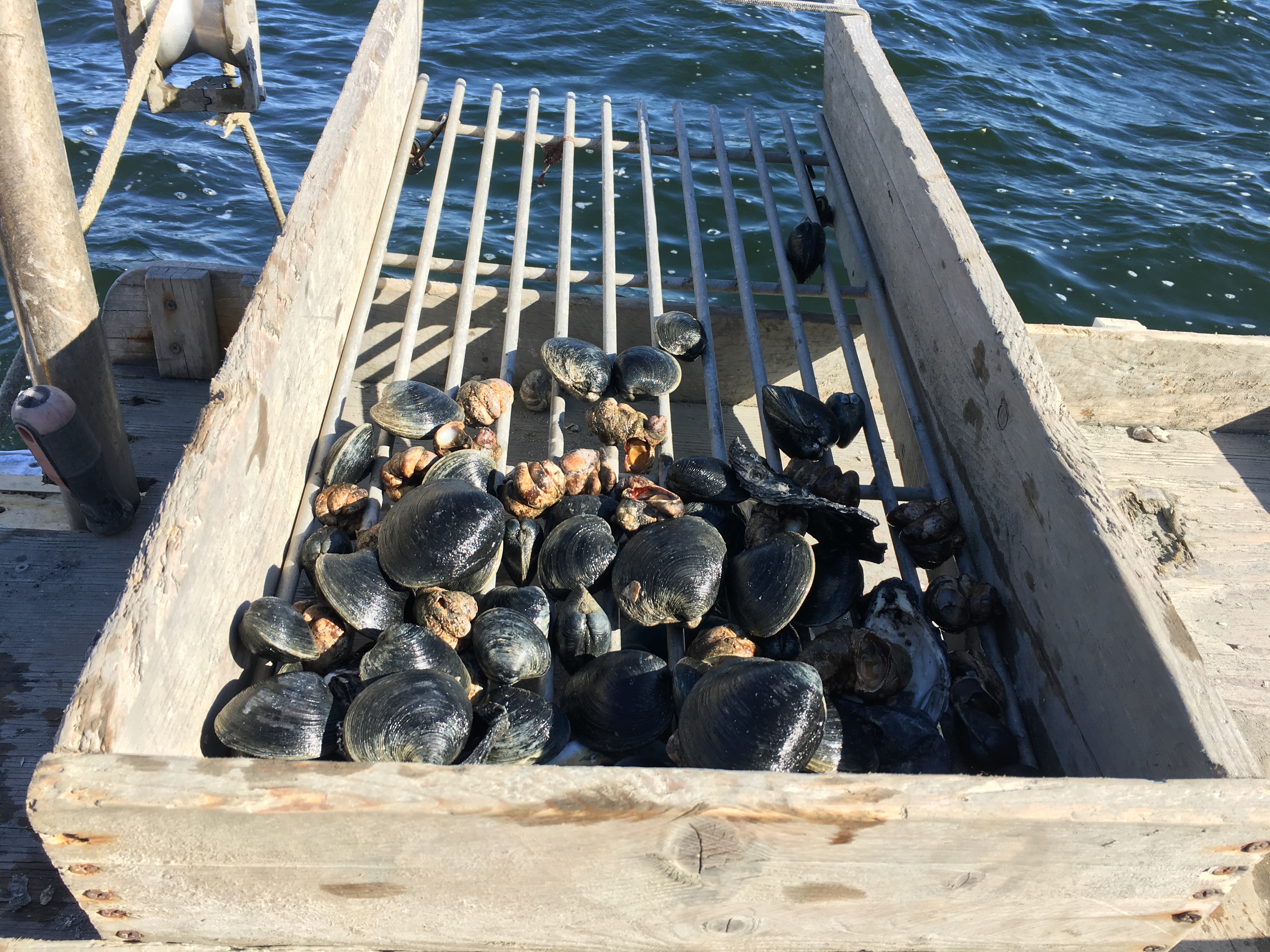
This rack sorts the clams, and fishermen toss back any that are small enough to fall between the cracks. Photo by Sofia Rudin for The Public’s Radio
Our last stop on a swing around New England’s changing economy is Rhode Island, where the hard-shelled clam called the quahog is part of the state’s lore.
But the clamming industry has shrunk dramatically since it’s heyday in the 1980s and 90s, and oysters are all the rage now, and that fishery is crowding out clammers, who get a bit less for their bivalves.
Sofia Rudin of The Public’s Radio reports.
Dialogue Project Aims To Unify Across State Lines
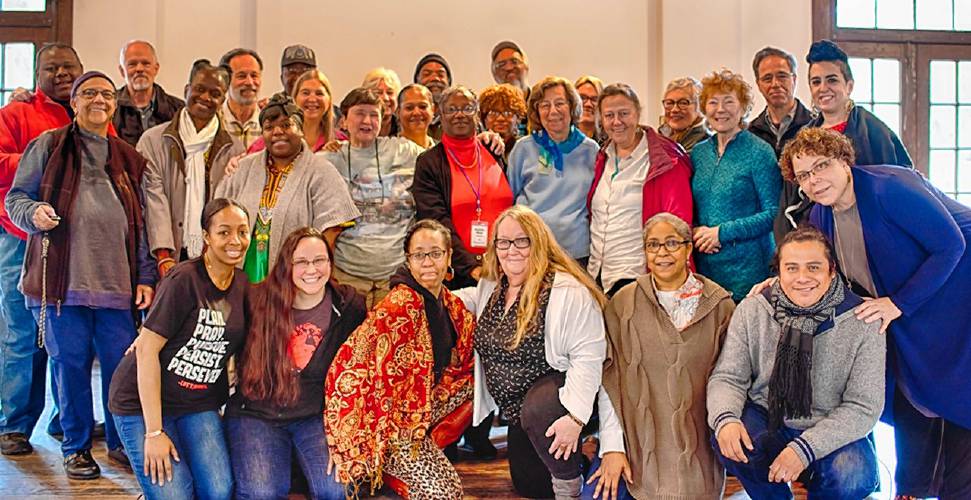
The ‘Bridge 4 Unity’ group at the Penn Center in Beaufort, South Carolina in January. Photo by Pat Crutchfield
A little over a year ago, we featured on the show a conversation with women from Massachusetts and Kentucky who were brought together by a project called “Hands Across the Hills.” The project was created after the 2016 election to bring individuals from across the political spectrum together to participate in a structured dialogue.
We recommend going back and listening to that conversation, from “Episode 83: Separated.”
This year, a similar project started, called “Bridge 4 Unity.” It includes a group from Kentucky, one from South Carolina and one from Massachusetts, who are talking about the tricky subject of race and racism. The group met in South Carolina in January for a three-day series of conversations, public events, and cultural visits. They’ll meet again in Massachusetts in June.
Paula Green, from Western Massachusetts, is co-creator and co-director of these dialogue projects. She joined us, along with Gwen Johnson from Kentucky, and from South Carolina, Regina Williams.
Fenway’s Mr. Fix It
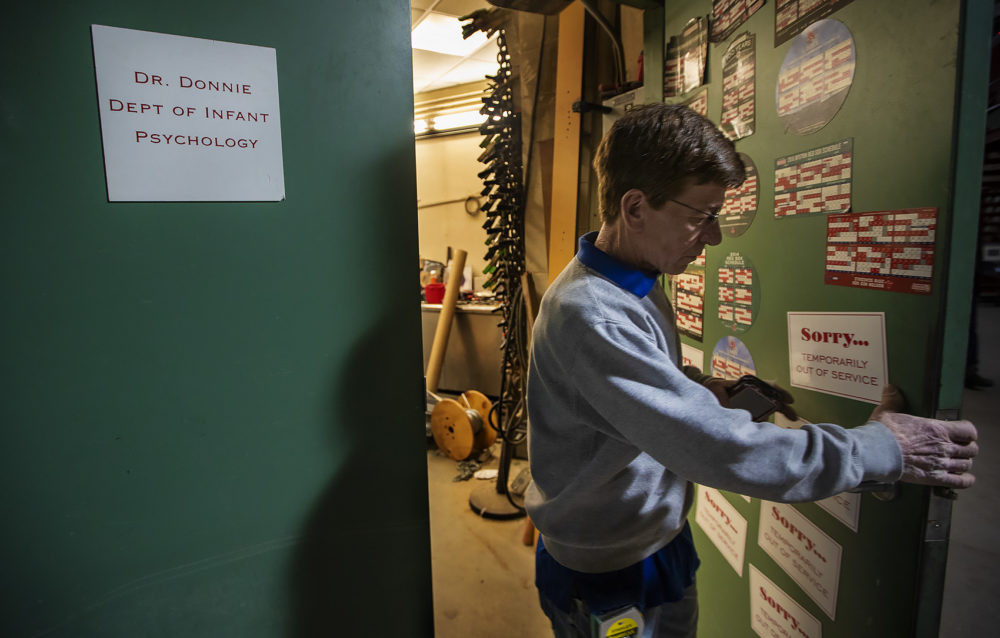
Fenway facilities superintendent Donnie Gardiner walks out of his workshop to head to the Red Sox clubhouse to check on the work being done there by contractors getting ready for opening day. Photo by Jesse Costa for WBUR
Red Sox fans have been waiting a long time for their world champions to come home. This week, the team was the last in the majors to host their home opener, and as it has been for more than 100 years, that game was played at Fenway Park. It’s a place that millions of New Englanders have known, but few have known it like Donnie Gardiner. He’s the Fenway facilities superintendent who has to keep everything at the oldest major league park running.
WBUR’s Shira Springer met Gardiner as he was getting ready for that first game.
Kathrine Switzer’s Historic Run
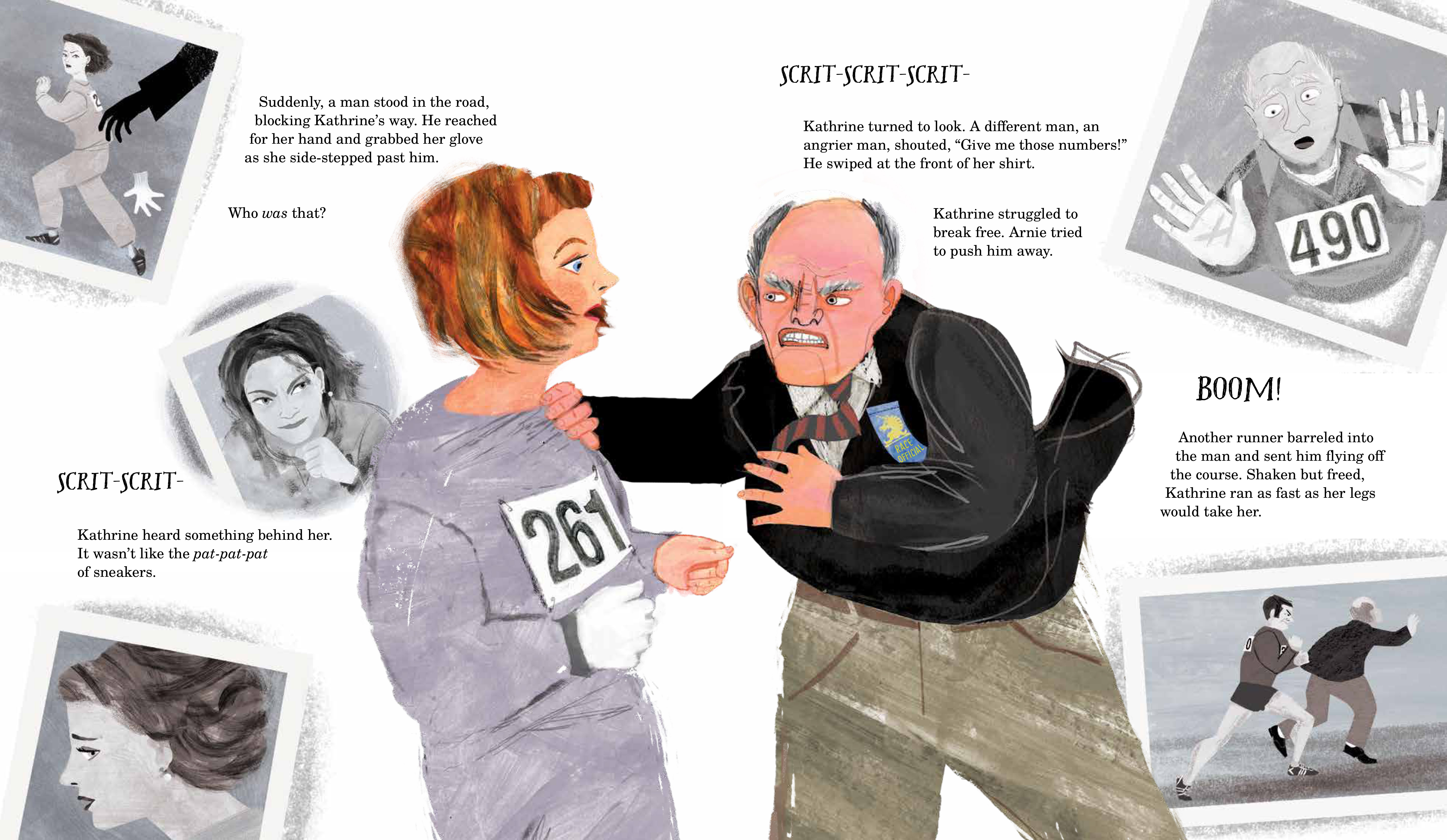
An excerpt of “Her Fearless Run: Kathrine Switzer’s Historic Boston Marathon” by Kim Chaffee, Illustrations by Ellen Rooney
 There’s another spring sporting tradition that coincides with the start of baseball season: it’s the Boston Marathon, which is celebrating its 123rd running. On Monday, April 15, some 30 thousand men and women will tackle the famous route from Hopkinton to Boston’s Boylston Street.
There’s another spring sporting tradition that coincides with the start of baseball season: it’s the Boston Marathon, which is celebrating its 123rd running. On Monday, April 15, some 30 thousand men and women will tackle the famous route from Hopkinton to Boston’s Boylston Street.
But it wasn’t all that long ago that women weren’t even allowed to run the race.
The story of that first woman, Kathrine Switzer, who broke the gender barrier in 1967 by becoming the first woman to run the race as a registered runner is the basis of a new children’s book by Kim Chaffee, illustrated by Ellen Rooney. It’s called Her Fearless Run: Kathrine Switzer’s Historic Boston Marathon.
Kim Chaffee joined us to discuss Kathrine’s historic race.
New Hampshire’s Last Roller Rink

Al DeHavens built the Enfield rink, originally called Al’s Casino, in 1977. At the height of the rink’s popularity, there were lines up to an hour to get in and hundreds of people out on the floor. Photo courtesy of Debbie DeHavens
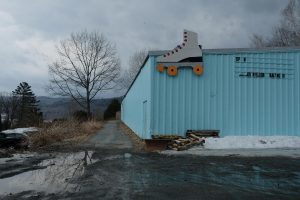
Today, there are often few cars in the parking lot at the rink, now named Great View Roller Skating. The current owners are struggling to keep it open. Photo by Britta Greene for NHPR
Britta Greene of NHPR takes us to the last remaining roller rink in all of Vermont or New Hampshire. It’s in Enfield, NH on a rural stretch of Route 4. It’s the sort of place that’s kinda hard to figure out how it’s still open. Sometimes there’s just a couple of cars sitting in the parking lot, even on a weekend evening.
But when the owner announced recently he planned to close, emotions ran high. People didn’t want to see it go. That’s because in its prime, the rink was more than just another gathering place, and as residents told Britta, nothing quite like it exists today.
New England Music
About NEXT
NEXT is produced at Connecticut Public Radio
Host: John Dankosky
Producer: Lily Tyson
Digital Producer: Carlos Mejia
Senior Director: Catie Talarski
Contributors to this episode: Fred Bever, Bayla Metzger, Sofia Rudin, Shira Springer, Britta Greene
Music: Todd Merrell, “New England” by Goodnight Blue Moon, “Too Much Trouble” by The Mallett Brothers Band, “Free” by Francesca Blanchard
—
New to NEXT? You can find every episode or one you missed within our archives.
We need your feedback! Send critiques, suggestions, questions, and ideas to next@ctpublic.org. Help us spread the word! If you like what you hear, rate and review us on iTunes.

